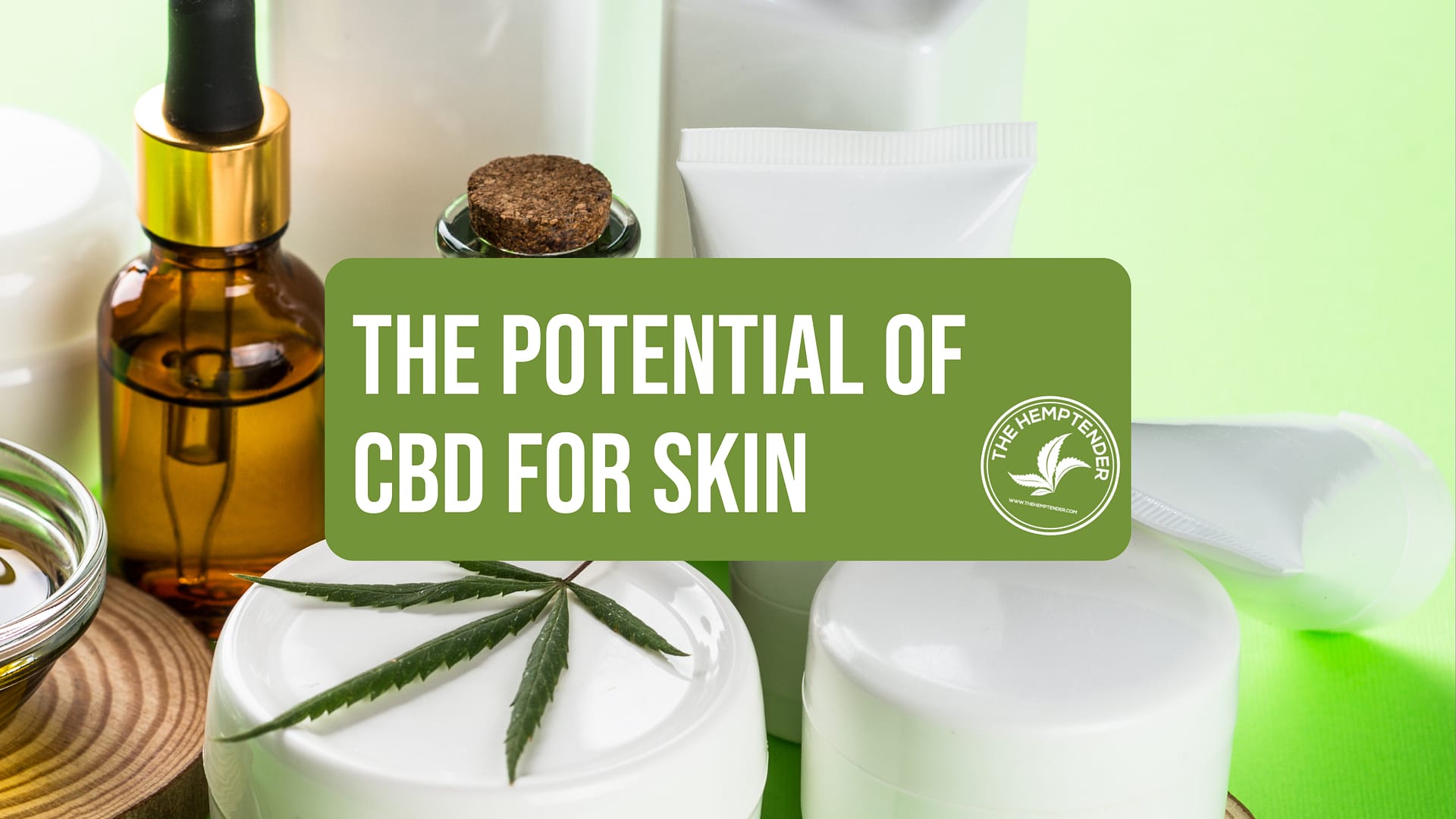CBD and Skincare: Unveiling the Potential

In a world where wellness meets science, the marriage of CBD and skincare has emerged as a revolutionary trend. Cannabidiol (CBD), a non-intoxicating compound derived from the cannabis plant, has taken the beauty industry by storm. But is it actually beneficial for skin or just a marketing campaign? Below, we’re diving into the realm of CBD and its application in skin care, exploring its potential benefits.
What is CBD?
CBD, short for cannabidiol, is a naturally occurring compound found in cannabis plants. Unlike its counterpart, THC (tetrahydrocannabinol), CBD won’t cause you to feel high, making it a therapeutic option in a few different ways. CBD interacts with the endocannabinoid system (ECS) in the body, a complex network of receptors that play a vital role in maintaining balance and homeostasis.
CBD and the ECS
The ECS regulates a lot of natural background processes within the body, like your mood, appetite, sleeping and waking cycle, inflammatory and immune responses, and more. CBD interacts with ECS receptors, particularly CB1 and CB2, which are present in the skin’s layers. Evidence suggests that this interaction might influence sebum production, inflammation, and your skin’s overall look.
CBD and Skincare
Research suggests that CBD may offer promising benefits for a few symptoms related to different skin conditions, but before we dive into some of the research, it’s important to pause for a second. Remember, CBD isn’t a treatment or a cure for anything, and research on it is still infantile. Remember to always consult a doctor before using CBD. While it may help with things like inflammation, it won’t cure any skin condition.
With that out of the way, let’s jump into some of the research:
- Acne: Acne is often the result of excess sebum production, inflammation, and bacterial activity. Evidence suggests that CBD’s potential anti-inflammatory and sebum-regulating properties might modulate sebum production and reduce inflammation, indicating that CBD could help manage acne symptoms.
- Eczema: Eczema, characterized by dry, itchy, and inflamed skin, can be disruptive and uncomfortable. CBD’s anti-inflammatory properties may relieve irritated skin and reduce itchiness. Further, functional ingredients like vitamin E and oat included in CBD lotions may help soothe irritated skin.
- Inflammation: Inflammation is a common factor in many skin issues. CBD’s anti-inflammatory effects could help alleviate redness, swelling, and discomfort associated with various skin conditions.
CBD Skincare Products
The skincare industry has embraced CBD, resulting in a plethora of products tailored to address different skin concerns:
CBD-infused creams, balms, serums, and lotions are designed for direct application to the skin. These topicals allow CBD to interact with ECS receptors in the skin’s outer layers, potentially providing targeted relief for localized issues within the skin and muscles.
To take it a step further, CBD’s antioxidant properties may contribute to its potential as an anti-aging ingredient. By combating oxidative stress, CBD might help protect the skin from environmental damage and premature aging.
Final Thoughts
As the worlds of wellness and skincare converge, CBD’s potential benefits against the symptoms of conditions like acne have garnered significant attention. By interacting with the ECS and leveraging its anti-inflammatory, sebum-regulating, and antioxidant properties, CBD presents a new frontier in the quest for radiant skin. If you’re ready to explore CBD for skin, start at The Hemptender.




